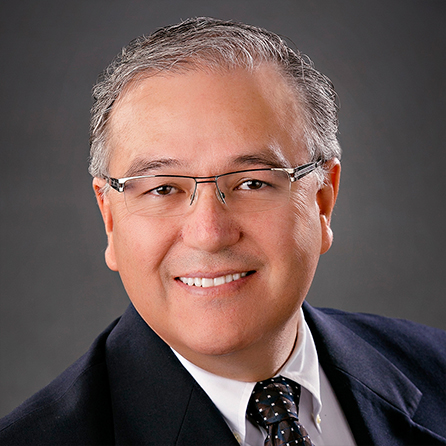
Quick Links
- What is Cubital Tunnel Syndrome?
- Testimonials
- What are the Symptoms of Cubital Tunnel Syndrome?
- What Causes Cubital Tunnel Syndrome?
- How is Cubital Tunnel Syndrome Diagnosed?
- What Treatment Options Are Available to Relieve or Prevent Cubital Tunnel Syndrome?
- What to Expect After Cubital Tunnel Syndrome Treatment
- Schedule a Consultation at the Regional Hand Center
- Patient Resources
- Meet The Team
What is Cubital Tunnel Syndrome?
The “funny bone” nerve (or the ulnar nerve) is a long tissue that runs from the armpit and through the inner side of the elbow. Cubital tunnel syndrome is a condition where the ulnar nerve causes tingling or a “pins and needles” feeling in the forearm or outer fingers of the hand. It can also cause weakness in the hand.
Before surgery the nurse even played my favorite music for me. Dr. Galli with all his experience put me at ease and ready to go through my surgery. I am healed now and using my hand at almost 100%. Thank you Regional Hand Center.
What are the Symptoms of Cubital Tunnel Syndrome?
Cubital tunnel syndrome can cause a numb or “pins and needles” feeling in the ring and pinky finger. It can also cause weakness of clumsiness in the hand. It typically occurs when the arm is bent for long periods of time like while sleeping or using a computer. In some cases, cubital tunnel syndrome can cause pain or even loss of sensation.
What Causes Cubital Tunnel Syndrome?
Cubital tunnel syndrome can be related to other health problems that affect the nerves like diabetes or thyroid disease. Additionally, pinched nerves in the neck can sometimes cause similar symptoms as cubital tunnel syndrome. Generally, however, it can have a few simpler causes.
Pressure
The ulnar nerve has very little protection against direct pressure (hence, hitting your “funny bone”). If the ulnar nerve sustains pressure for long periods of time, like leaning on your elbow, it can cause the outer fingers to “fall asleep,” this is called ulnar nerve entrapment.
Stretching
When you keep your elbow bent for long periods of time, it can stretch the ulnar nerve behind the elbow and result in loss of sensation. This is common when sleeping.
Genetics
For some people, their natural anatomy causes the ulnar nerve to become irritated or damaged. This might be the case if the nerve does not stay in place when bending your elbow or it moves over bony bumps. Additionally, soft tissues that surround the nerve may become too thick and prevent the nerve from working correctly.
How is Cubital Tunnel Syndrome Diagnosed?
Diagnosis for cubital tunnel sydnrome will always begin with a review of your complete medical history. In addition, your doctor may ask you about some of your symptoms which may include muscle weakness, tingling or numbness in your hand, and pain of the inner elbow joint. Diagnostic tests may include a blood test, electromyogram, nerve conduction test, or x-rays to check for bone spurs.
What Treatment Options Are Available to Relieve or Prevent Cubital Tunnel Syndrome?
The first line of treatment in cubital tunnel syndrome is preventing further irritation. If cubital tunnel syndrome is occurring because of your sleeping position, your orthopedic hand specialist might recommend a splint or foam elbow brace worn while sleeping. Additionally, leaning your arm on an arm rest can cause ulnar nerve compression or putting pressure on your “funny bone. You can explore the possibilities of what could be causing it with your orthopedic hand specialist and determine what changes can be made.
Surgery is sometimes needed to relieve pressure on the nerve (especially if the causes are genetic). This might include removing parts of the bone irritating the nerve or relocating the nerve to the front of the elbow. Your orthopedic hand surgeon will discuss your options during a consultation.
What to Expect After Cubital Tunnel Syndrome Treatment
If you undergo surgery, you’ll need time to recover and let your body heal. Because nerves heal slowly, it may take months. It may also take time to see improvement in symptoms like numbness, tingling, or muscle weakness and you may need a combination of therapy and surgery to see best results. It’s important to take steps to prevent symptoms from reoccurring and your orthopedic hand specialist can help you develop a treatment plan.
Schedule a Consultation at the Regional Hand Center
Our orthopedic hand specialists can help you achieve relief from uncomfortable symptoms that come with cubital tunnel syndrome. To schedule an appointment, contact our Fresno, CA office by calling or filling out our online form.
Patient Resources
Whether you are planning a procedure or you are interested in options for treatment, the professional and caring Regional Hand Center team makes it easy to find the answers you need. For an appointment or answers to your questions, call (559) 322-HAND.
View All

Randi A. Galli, MD
Board-Certified Surgeon
Dr. Randi Galli is certified by the American Board of Plastic Surgeons and a Fellow of the American College of Surgeons. A member of Alpha Omega Alpha, the medical honor society that comprises the top ten percent of medical students, Dr. Galli received his Medical Degree from Tulane University School…
Learn More

Ricardo Avena, MD
Board-Certified Surgeon
Dr. Ricardo Avena is board certified by the American Board of Surgery and is a Fellow of the American College of Surgeons. Born and raised in Mexico City, Dr. Avena attended medical school at the National Autonomous University of Mexico. Upon graduation, Dr. Avena received his certification from the Educational…
Learn More
Isobel Santos, MD
Board-Certified Surgeon
Dr. Santos attended the University of California, Berkeley with a B.A in Molecular and Cell Biology with a focus on Cell and Developmental Biology. She then received her medical degree at University of Vermont College of Medicine where she was nominated to be a member of the Alpha Omega Alpha…
Learn More